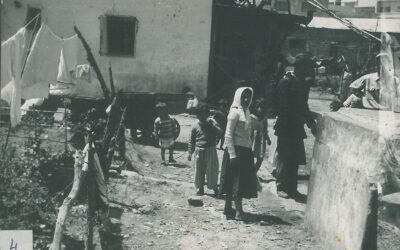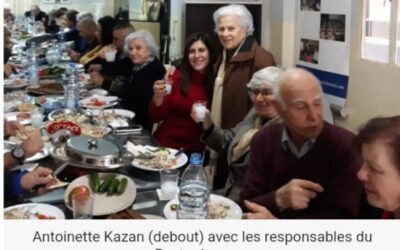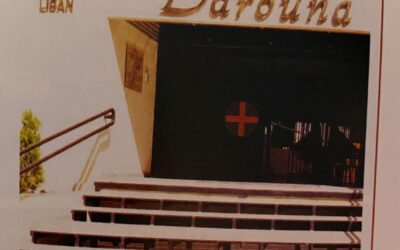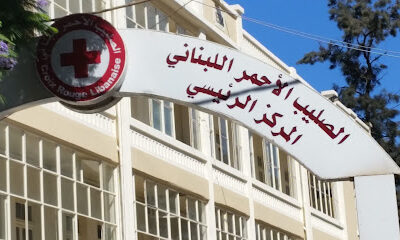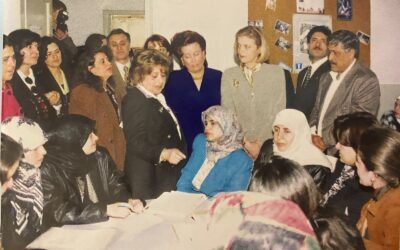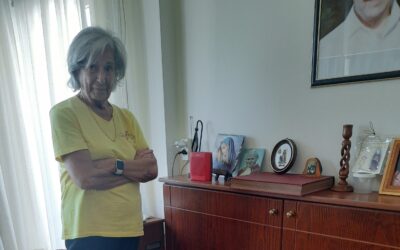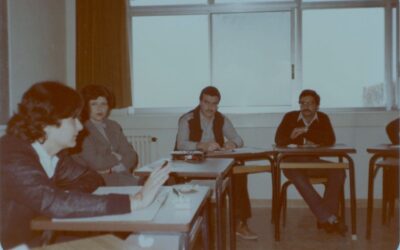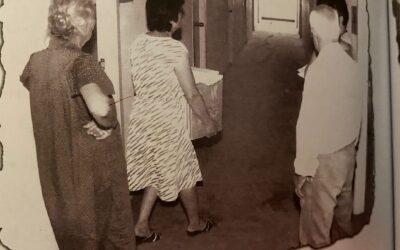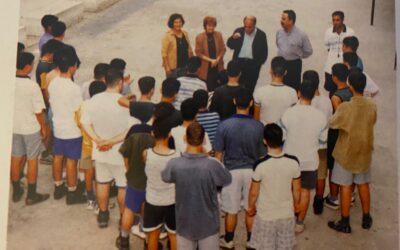Pioneers
1. Experience through the “Centre de Protection Maternelle et Infantile” – karantina
In 1978, the Karantina neighborhood, where families, known as “Arab Al-Maslakh”, Kurdish families, and other poor and marginalized groups were…
2. Experience through the “Restos du Cœur Association”
The idea of “Restos du Coeur” was born at one social worker’s home, Mrs. Antoinette Kazan, at the beginning of the 1975 war, when many children who…
3. Experiences through the “Mouvement Social”
The experience of the “Mouvement Social ” preceded the Lebanese war, as it was founded in 1957, yet it responded to the call of relief work at the…
4. Experiences through “Caritas Liban”
Caritas Liban, whose first branch was established in the south in 1974, had a significant role in relief work across Lebanon. The large number…
5. Experience through the “Lebanese Red Cross Centre-Mreijeh”
Between 1984 and 1988, there was a pioneering experience at the Lebanese Red Cross Center-Mreijeh by the social worker in charge who gathered around…
6. Experience through the “Social Development Centre”–SDC Ministry of Social Affairs (MOSA) – Borj El-Barajneh
During the 1975-1990 war, primary healthcare centers played a significant role in providing health care, social assistance, and relief services…
7. Experiences through the “Service de l’Enfant au Foyer” SEF
One of the most important programs during the war was helping widowed mothers and their children within the family. In 1977, the French institution…
8. Experience through the “Young Men Christian Association” YMCA
At the beginning of the war, the Young Men Christian Association in Lebanon YMCA, which was established in 1890, turned to relief work, and it had…
9. Experience through the “Middle East Council of Churches” MECC
There was a pioneering experience between 1980 and 1983 in Akkar district in the field of relief, rehabilitation, and reconstruction work between…
10. Experience through the “Institut de Rééducation Audio-Phonétique” IRAP
Another pioneering initiative was the experience of the “Institut de Rééducation Audio-Phonétique” “IRAP” founded in 1960. The administrator…
11. Experience through the “Soins Infirmiers et Développement Communautaire” – SIDC
The SIDC, which was founded in 1987 by Elie Aaraj, played a significant role in Sin El Fil – Nabaa region during the Lebanese war in terms of…
12. Experience through the “Centre de Protection Maternelle et Infantile” of the Sisters of Charity – Karm El Zeitoun
During 13 years of the 1975 war, Mrs. Amal Harb’s initiative in Karm El Zeitoun was a milestone that affected many aspects of life, besides relief…
13. Experience of two educational cadres, each individually through the “Ecole Libanaise de Formation Sociale-Université Saint-Joseph” – ELFS-USJ
A new cycle of violence occurred inside residential neighborhoods in Beirut between 1989 and 1990. Several initiatives came to help the residents of…
14. Experience through the “Ecole Libanaise de Formation Sociale-Université Saint-Joseph” – ELFS-USJ
A new practice can be identified in some periods of the 1975 Lebanese war, which was the “car bombs” that exploded in residential neighborhoods,…
15. Experience through the “NGOs Platform of Saida”
Many initiatives were done in the south of Lebanon, as all associations and social centers have been involved in relief work. Perhaps, the…
16. Experience through the “Rabieh Garden Club”
Another experience that deserves to be considered follows the displacement of the Damour people and their arrival by sea in small boats to Kaslik…
17. Experience through the “Service Social pour le Bien-être de l’Enfant au Liban” SESOBEL
The issue of disability was one of the most prominent problems created by war, and one of its negative consequences was the suspension of work at…
18. Experience through Multiple centers to shelter the displaced in Ouzai, and the southern suburb of Beirut
During the war years, the prevailing security situation did not prevent social workers from fulfilling their obligations despite the risks they were…
19. Experience through “Terre des Hommes-Lausanne”
Probably the social worker’s experience, Mrs. Takla Wakim, at “Terre des Hommes-Lausanne” who suffered with her family from displacement more than…
20. Experience through the “Hôpital Psychiatrique de la Croix” – Bqennaya
One of the experiences that is worth mentioning is that of Mrs. Wadad Gemayel Chehab at Deir El Salib, who challenged the risks and difficulties of…
21. Experience through “Dar al-Amal Association”
Working with marginalized groups, such as homeless children, those prone to deviation or delinquency, girls exposed to violence and exploitation,…
22. Experience through the “Union pour la Protection de l’Enfance au Liban” – UPEL
The “juvenile delinquents” sector did not survive the horrors of war; hence the “Warwar Observation Center” was closed, as well as the…
23. Experience through the “Centre Social pour Handicapés Physiques de Guerre”– MOSA – Sin el-Fil
Due to the large number of disabled people in the Lebanese war, including fighters and civilians who were injured by shelling, sniping, and…
24. Experience through a socio-pastoral work in the northern Bekaa region
At the end, it is necessary to pay a respectful tribute to the memory of Jesuit Father Nicolas Kluiters whose experience as a social worker…

